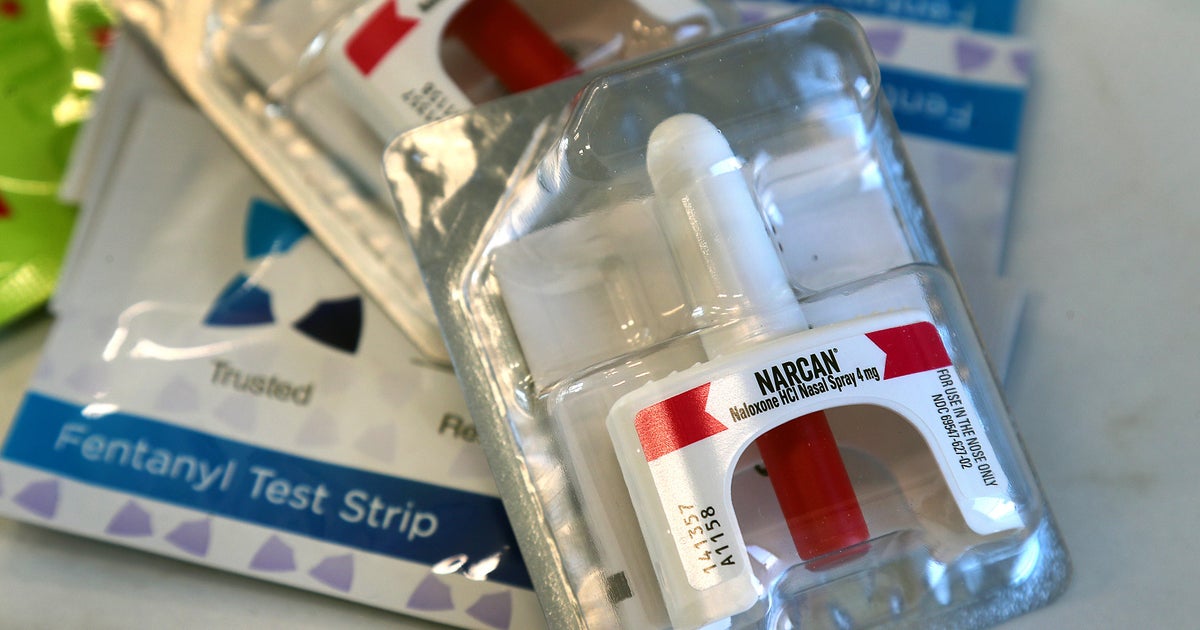CBS News
Biden and lawmakers seek path forward on Ukraine aid, border talks with White House meeting

Washington — President Biden is set to meet with congressional leaders on Wednesday afternoon as a monthslong dispute over border security and aid for Ukraine makes its way to the White House.
The high-stakes meeting is set to focus on what the White House calls “the critical importance” of the president’s supplemental funding request, which includes money for Ukraine, Israel, border security and more. The White House said congressional leaders, key committee chairs and ranking members were invited to the 3:15 p.m. sit-down, but it has not released a full list of participants.
For months, the spending package has been up in the air after congressional Republicans made their backing contingent on the Ukraine aid being tied to enhanced border security measures and immigration policy changes. Senate negotiations aimed at forging a compromise on immigration issues dragged through the holidays and into the new year.
Seeking to attract a group of moderates from both parties to back the aid package, senators have been circling a middle-ground deal that would represent a major breakthrough after decades of failed efforts in Congress to reform the immigration system.
Senate Majority Leader Chuck Schumer said ahead of the meeting that the upper chamber has “made a lot of good progress” in recent weeks, noting that he’s “hopeful that things are headed in the right direction.”
“I expect the meeting with President Biden will reinforce something I’ve been saying all along: It’s a matter of the highest national urgency that both parties keep working together to pass the supplemental,” the New York Democrat said. “The eyes of history are upon this chamber.”
But even if the Senate reaches and passes a deal on immigration, its prospects for approval in the House are far from certain.
House Republicans skeptical of Senate immigration talks
Kent Nishimura / Getty Images
House Speaker Mike Johnson, a Louisiana Republican, said at a news conference earlier Wednesday that House Republicans are “anxious” to see the Senate agreement on border security and acknowledged the “thoughtful” negotiations. But he quickly cast doubt on whether there would be support for the immigration reform in the lower chamber.
“I don’t think now is the time for comprehensive immigration reform, because we know how complicated that is,” Johnson said, noting that it can’t be done quickly. “I do think it’s past time to secure the border.”
House Republicans have stood firm on a demand that a House-passed border security bill known as H.R. 2 be the baseline of any immigration agreement — a nonstarter in the Democratic-controlled Senate.
Johnson touted H.R. 2 again on Wednesday, noting that it would restore the Trump administration’s “Remain in Mexico” policy, end the quick release of migrants into the U.S., reform the asylum and parole processes and resume construction of the southern border wall.
“Those elements are critically important,” Johnson said. “You can’t choose from among those on a menu and assume that you’re going to solve the problem.”
The speaker said House Republicans are “demanding real, transformative policy change,” noting that they’re “standing on that line,” which he said he plans to tell the president at Wednesday’s meeting.
When asked about Ukraine aid, Johnson made clear that he would tell Mr. Biden that border security comes first, saying “we have to secure our own border before we talk about doing anything else.”
He also said House Republicans need answers to “critical questions” about the U.S. strategy in Ukraine and accountability for funding to Kyiv.
“We need to know that Ukraine would not be another Afghanistan,” Johnson said.
CBS News
Democratic Congressman on the party’s messaging, focus

Watch CBS News
Be the first to know
Get browser notifications for breaking news, live events, and exclusive reporting.
CBS News
11/13: The Daily Report – CBS News

Watch CBS News
Be the first to know
Get browser notifications for breaking news, live events, and exclusive reporting.
CBS News
Opioid overdose deaths drop for 12th straight month, now lowest since 2020

Opioid overdose deaths have now slowed to the lowest levels nationwide since 2020, according to new estimates from the Centers for Disease Control and Prevention. This marks the 12th straight month of decline since a peak last year.
Around 70,655 deaths linked to opioids like heroin and fentanyl were reported for the year ending June 2024, the CDC now estimates, falling 18% from the same time in 2023.
Almost all states, except for a handful in the West from Alaska through Nevada, are now seeing a significant decrease in overdose death rates. Early data from Canada also suggests overdose deaths there might now be slowing off of a peak in 2023 too.
“While these data are cause for optimism, we must not lose sight of the fact that nearly 100,000 people are still estimated to be dying annually from drug overdose in the U.S.” said Dr. Nora Volkow, director of the National Institute on Drug Abuse, in a statement.
Other types of drug overdoses beyond opioids are also slowing. While they make up a smaller share of overall deaths, overdoses linked to drugs like methamphetamine and cocaine are also showing signs of dropping nationwide following a peak last year.
“We are encouraged by this data, but boy, it is time to double down on the things that we know are working. It is not a time to pull back, and I feel very strongly, and our data shows, that the threat continues to evolve,” Dr. Allison Arwady, head of the CDC’s National Center for Injury Prevention and Control, told CBS News.
Arwady pointed to a long list of factors that officials hope are contributing to the decline, ranging from broader availability of the overdose reversing spray naloxone, also known as Narcan, to efforts to ease gaps in access to medications that can treat opioid use disorder.
John Tlumacki/The Boston Globe via Getty Images
Trends in what health officials call “primary prevention” have also improved in recent years — meaning fewer people using the drugs to begin with. As an example, Arwady cited CDC surveys showing a clear decline in high school students reporting that they have tried illegal drugs.
The CDC and health departments have also gotten faster at gathering and analyzing data to respond to surges in overdoses, Arwady said, often caused by new so-called “adulterants” that are mixed in. Health authorities study this by testing blood and drug samples taken in the wake of surges, in search of potential emerging drug threats.
Agency researchers are now looking closer at what could be behind gaps in communities that are still not seeing slowdowns, Arwady said.
“Unfortunately, for the most affected groups, namely Native Americans and Black American men, the death rates are not decreasing and are at the highest recorded levels,” said Volkow.
Why are drug overdose deaths declining?
In the months since CDC data first began showing real signs of a nationwide change to the deadly record wave of opioid overdose deaths, experts have floated a number of theories to explain what caused the change.
“We had been seeing the numbers go down, on the national aggregate level, since last April, and we were skeptical and kind of holding our tongues. Then we started hearing from a lot of folks on the ground, frontline providers,'” said Nabarun Dasgupta, a senior scientist at the University of North Carolina Chapel Hill who studies opioid overdose deaths.
Dasgupta led an analysis in September by the university’s Opioid Data Lab illustrating the nationwide scope of the downturn and probing a number of theories that might explain it.
Some explanations they dismissed as unlikely, like stepped-up law enforcement operations. Other ideas they judged as plausible, but complicated to prove, like a so-called “depletion of susceptibles” — essentially the epidemic burning itself out, as users either found ways to survive the influx of fentanyl or died — or the wider availability of naloxone.
Dasgupta said they received a flood of interest since their initial post proposing more theories, like new scanners that were deployed on the U.S.-Mexico border.
There are likely a number of factors all playing a role in the shift, Dasgupta says. But he said early data from research they are wrapping up now supports one leading explanation: a shift in the illegal drug supply.
“Our hypothesis is that something has changed in the drug supply. This kind of pronounced shift, something that happens suddenly, if numbers had suddenly shot up, we would definitely be pointing to a change in the drug supply to explain it,” said Dasgupta.
Amid its downsides, xylazine‘s rise might have led to less injection drug use, they speculate. Its longer high could also be reducing the number of times people use fentanyl each day.
“We’re not in our offices celebrating. We’re still losing too many people that we love. So I just want it to be very clear that with like a hundred thousand people still dying, that’s obscenely high,” he said.



